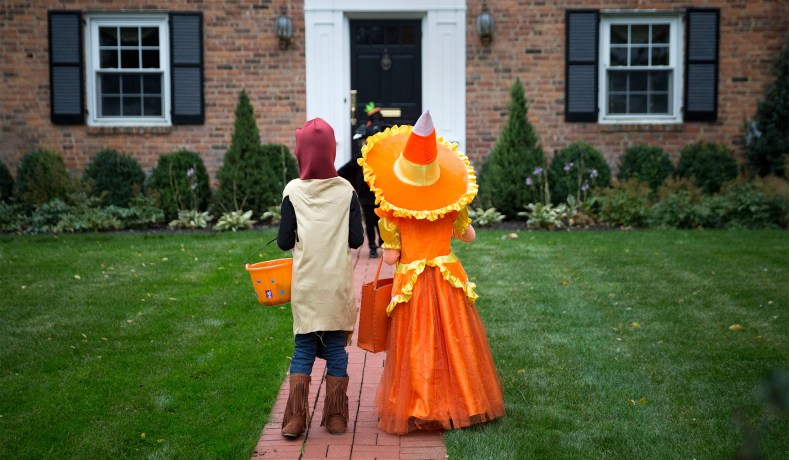[ad_1]

Legal rights are only as secure as the cultural footing they are moored in.
Sometime over the course of the next few weeks someone is going to do something incredibly stupid. But this isn’t about politics, it’s about Halloween. Free-speech advocates dread the holiday because we know that every year we will have to contend with another viral moment in which someone’s bad attempt at a humorous costume rightfully offends not only some in attendance, but all of Twitter.
In a nation of 350 million, even with COVID-19 making parties rarer, someone somewhere will think it would be a great idea to dress up as George Floyd. It will be a horrible idea, but it’s as predictable as the annual debate about whether candy corn is good. (It is.) And the predictable response will be to condemn free speech for letting this happen.
My modest proposal: Let’s not do any of that this year.
First, for the person who is thinking that would be a great costume idea, stop. It’s not. Yes, the First Amendment protects a whole lot of speech that people may find offensive. “Hate speech” is not a thing under the Constitution. Speech can be both awful and lawful. But the fact that the government can’t stop you from expressing an idea doesn’t mean you should express it. Challenge the status quo? Speak up for what you believe in? YES. Irreverence can even play an important role in how we communicate challenging ideas and uncover truth. But trying to be an unfunny schmuck to own the libs? Just don’t.
But that plea will fall on deaf ears. I know this, and so do you. So how should the rest of us respond?
For campus administrators, Halloween almost invariably results in them being asked to play costume cop, telling students how to dress to avoid offending others. Encouraging students to respect each other is fine. But too often official action goes beyond that, threatening students with disciplinary action for costumes that may offend someone else.
Fostering diversity on campus is critical to both educating students and continued intellectual progress. So is free speech. The two are mutually reinforcing. Free speech makes our diversity meaningful. It turns those statistics into conversations that develop understanding. Free speech is necessary, but it’s necessarily messy. If you intercede in an effort to avoid controversy, you’re likely only to stir more controversy, and fail to stem offense in any case. If you want students to act like adults, treat them like adults. Invite the dialogue that these situations create. You’ll be asked to censor. What if you take the harder path and don’t?
For the media — I know the viral pic of the probably illegally inebriated 18-year-old will go viral. The clicks are there for the taking. But is the predictably bad costume choice of a student — so predictable that I can write this piece in advance — really news? Will this inform readers or play on our existing divisions? Does this speak to the racial-justice issues our country is facing, or does it just remind us that sometimes teenagers make very bad decisions? Important stories sometimes can’t avoid doing all of these, and the press ultimately makes the call on what is and isn’t news. But maybe don’t just do business as usual.
And for the rest of us — when the kid makes the bad choice, the administrators respond too aggressively, someone in the media and then social media spins up in baffled dismay at the all-too-predictable (and preventable) spectacle — you still have the choice. Let’s not.
It’s best not to draw conclusions about the state of the nation (or the state of anything else) from a photo of an 18-year-old who made a terrible decision about a Halloween costume. And it’s definitely a bad idea to draw conclusions about whether the very First Amendment that protects your freedom to speak and worship and assemble is the monster in this Halloween story.
You know that civil liberties are the solution to our uncivil times, not their cause. Sure, viral moments like these — when people use civil liberties in lamentable ways — will get outsized attention. But when you’re asked to judge the value of free speech by its use by that one 18-year-old kid? Let’s not.
Free speech is on firm legal ground. Over the past four decades the Supreme Court has ensured greater protection of free speech than at any time in our history. But legal rights are only as secure as the cultural footing they are moored in. Halloween is one of our annual tests — when we’re asked if we will agree that the First Amendment goes too far and “bad speech” should not be protected. This year, let’s not.
[ad_2]
Read the Original Article Here

